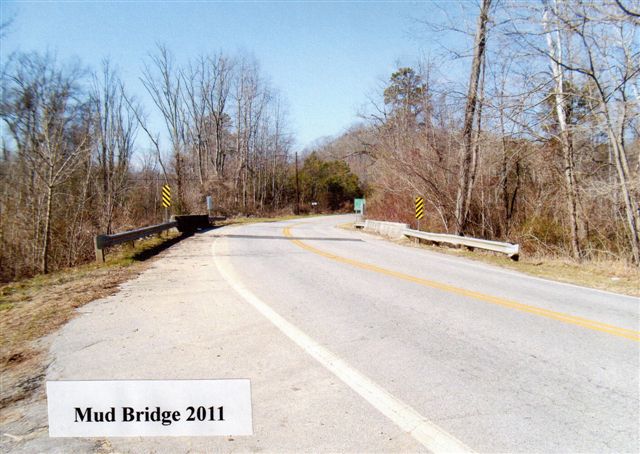The Other Glendale Bridge
Collapses
Story furnished by Clarence Crocker

According to a brief
news article appearing in the Saturday morning
Spartanburg Herald paper on August 20, 1921, the small
wooden bridge at the upper end of the Glendale Mill pond
had collapsed under the weight of a truck loaded with
cotton. It was reported that a number of men spent
several hours fishing bales of cotton out of the water.
We can only presume that the cotton was headed to
Glendale Mills.
A second article
appearing in the paper on Thursday morning August 25,
1921, stated that the bridge collapsed on Friday the
19th when a truck hauling twenty bales of cotton was
crossing over the bridge. Owned and operated by Cooper,
Griffin and Company of Greenville, S. C., the trucking
firm volunteered to pay their share of repairing the
bridge.
The last article also
stated that in preparation for the bridge repair, the
heavy timbers for the structure had already been cut and
hewn and would be sent to Glendale that day. The bridge
was a wooden structure for many years.
Known as the “Mud
Creek Bridge” it is located just below the old Glendale
ball park on the Spartanburg/Glendale road commonly
called “The Country Club Road”. It crosses over a small
contributory branch which empties into Lawson Fork
river/pond. When the waters in the pond would rise due
to heavy rains, the pond water backed up into the
contributory. I have seen the water 5 or 6 inches over
the floor of the bridge.
While it was possible
for two cars to pass on the bridge, obviously it was
meant to be a single lane bridge. Numerous fender
benders occurred on the bridge due to drivers ignoring
this fact. Warnings were not posted on bridges and
roadways then as now. It was, and still is, located in a
curve which increases the danger.
One of the young men
from Glendale was crossing over the bridge when another
car approached from the other side. The young man’s hand
lying in the driver’s door window with his fingers
overreaching the frame, resulted in the loss of two or
three fingers from his hand when the cars smashed
against each other.
It was not until the
1950s, after a major wreck that we were able to get the
bridge updated in structure and widened to two lanes. A
few years later it was replaced with a concrete
structure which remains today and is shown in the photo
above.

This web site has been started
as a public service to share the story of Glendale. See
more information about Mary and her Glendale connection
at Mary McKinney Teaster.

